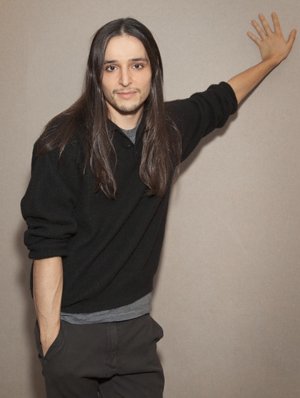Excuse me as I make this deeper than you intended but that comes from the good ol' 'we have the government we deserve', from your homeboy de Maistre, who was as anti-change and conservative as they come. It's a pretty flawed expression that, historically, is recycled by those with the upper hand in society, to defend the status quo, gaslight and blame the consequences of their tight grip on society, on the group at a disadvantage, with less say or power, attributing the stillness to their mediocrity, their inability to resist and change their own conditions. It goes from flawed to ?? when applied to a field that is the definition of unadulterated capitalism (fashion), a field that relies on aggressive marketing, that in a relatively small number of years, has absorbed and eroded everything on its path to consolidate itself into monopolies, decimating competitiveness, and not talking about monopoly 1 vs. monopoly 2 but competitiveness on the very premise of fashion design: design.
The way people consume fashion depends on socioeconomic context, political climate, you name it, but their behavior is very much regulated and redirected by the main players in it, those with the bigger budgets to manipulate opinion, to phase out critical thinking, depict rebelliousness or any appetite for smaller, non-commercial, unknown, independence or difference as the appetite of the 'maybe not so wealthy' and ignorant, who want different because maybe they just can't afford sameness. That has been the default campaign by the main conglomerates post 2008, they jumped like vultures on the state of the industry and have indoctrinated old and younger generations (through the media!) into understanding that you are essentially a loser if you have not been validated by their corporate touch.
Multiple waves of designers have come in the past 50 years, at the same time, they tended to coexist just fine and given the amount of people, the bar was higher not just in 'vision', but technical knowledge, too. Thinking that comparisons with the past stem from nostalgia when, if you have followed fashion for more than 15 years (and you have), you know the highly monopolistic direction it's taken and that the pillar of a monopoly is to reduce consumer choice, seems like an effort to justify a commercial direction that matches personal taste, and that's okay, but looking at the previous state of the industry can be pretty educational, it teaches you about the potential fashion still has and how this 'wave' is hardly a wave, these are just nearly identical guys appointed nearly identical jobs that consist of making a bit of noise, putting the company in the mouths of people, make anyone with any income spend on it (under the fantasy that it's 'elitist'), do it again and again for a few years, escort them out and bring on someone new that can do the same but without smelling old. That was definitely not the requirement of the waves that brought everything from Yohji, Wauchob, Cavalli to the guys from Dsquared. An aesthetic, whether personal taste or not, is completely separate from the corporate dynamics that dominate fashion right now and leave room for nothing else, and their spokespeople (aka. 'designers'/creative directors) deserve all the criticism, yes, they're just some vanilla guys with beautiful dreams, but they still take part in all of the above.. their business decisions, skills, successes and failures are not above any questioning with that degree of marketing and consumerism involved.



